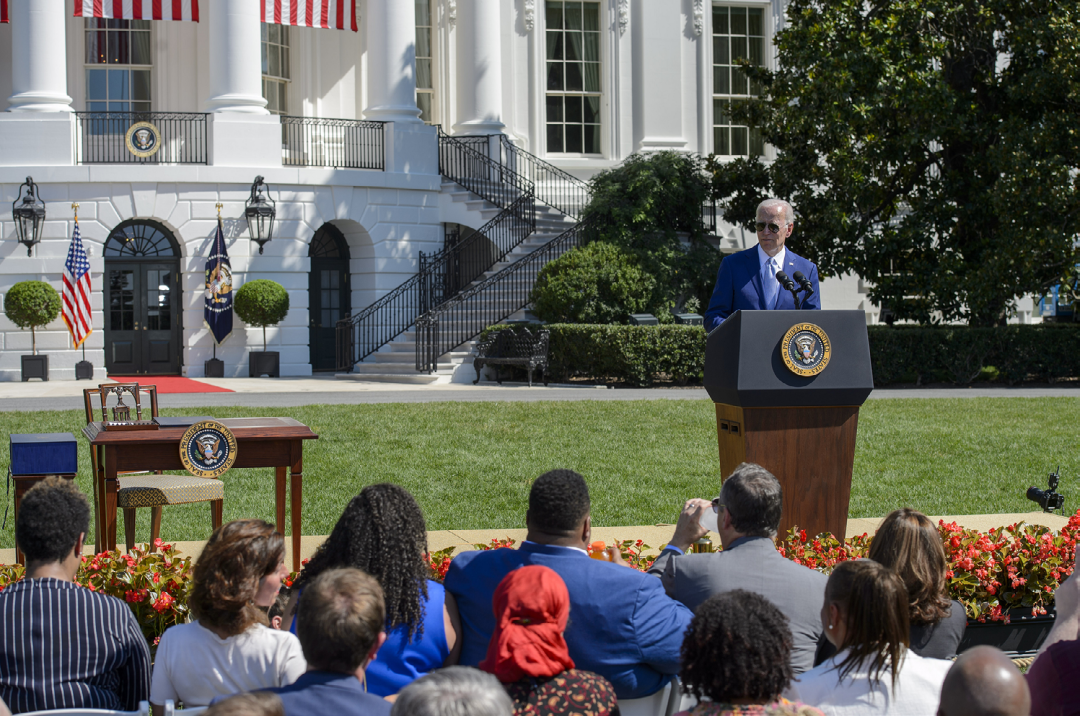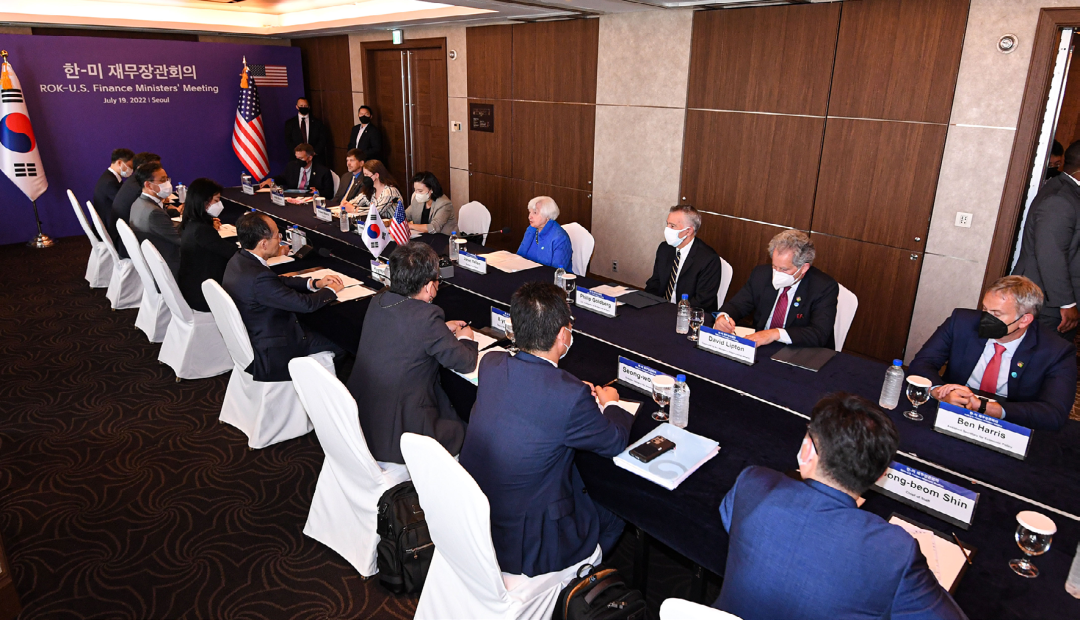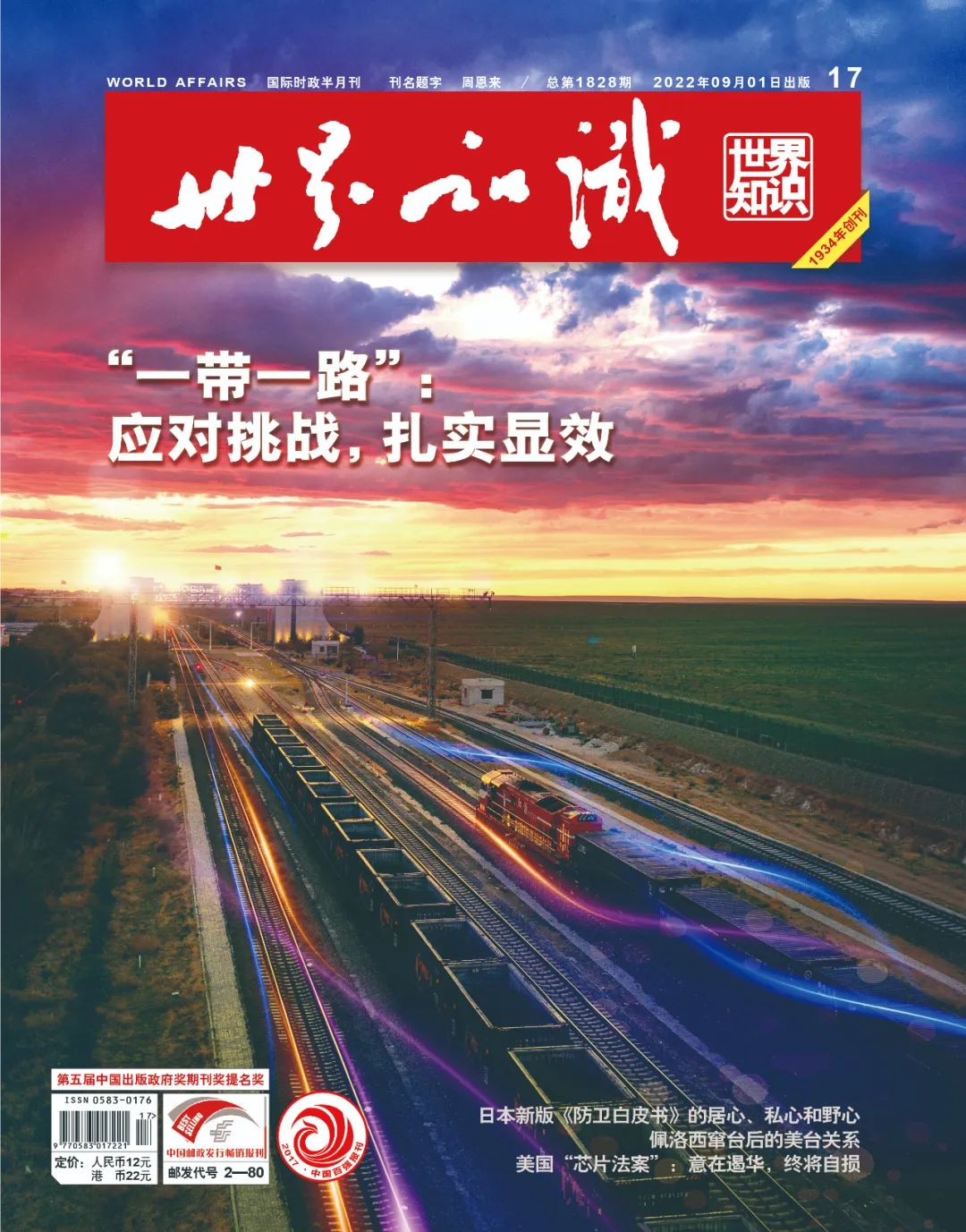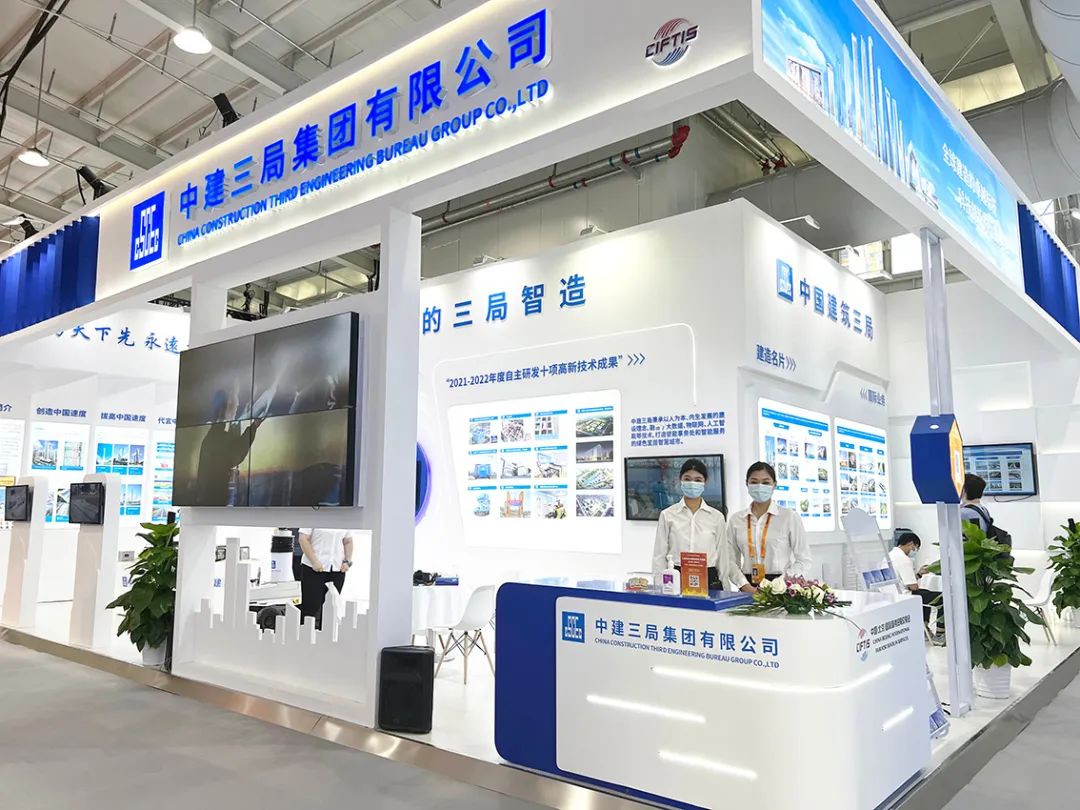Tan Xiaojian: The American "Chip Act": It is intended to curb Hua, and it will eventually damage
Author:Knowledge Society Time:2022.09.06
On August 9, US President Biden officially signed a total funding of $ 280 billion (Chips and Science Act (hereinafter referred to as the "Chip Act"). For the first time, the bill clearly lists many countries including China as the object of restricting investment and selling specific types of technologies and services. ) The game of cutting -edge technologies such as artificial intelligence has been upgraded to new intensity and scale. If the bill is put into work, it will seriously damage the international division of international divisions based on market laws and free trade. The "rotary dart effect" generated will eventually cause the United States to taste bitter fruit.

On August 9, 2022, US President Biden signed the "Chip and Science Act" in the White House and delivered a speech.
What is the bill involved
The "Chip Act" was led by the majority of party leaders and Democrats of the Senate of the United States Congress, led by Democratic Party, and the predecessor was the "American Innovation and Competition Act" with the "Endless Frontier Act" as the mother -based. Among them, "Chips" is not only a plural form of the word "chip", but also the abbreviation of "creating incentives that helps the production of semiconductor".
In the past two years, the "American Innovation and Competition Act in 2021" was involved in the "tug -of -war" of the United States two parties in Congress, constantly renamed, and it was easy to make the manuscript, which caused the relevant bills to be blocked in the House of Representatives for nearly a year, causing dissatisfaction in Washington's senior management. When visiting Ohio in May this year, Biden even said "passing the damn bill and handing it to me (signing)" when he visited Ohio. As a result, the above bill was independent from the original huge plan. In the end, the "chip and the science bill" successfully broke through the two courts of the Congress, and signed a law by Biden.
The "chip bill" includes two parts: "Promoting the chip industry" and "promoting technology research and development".
The "promotion of the chip industry" part involves $ 54.2 billion in funding, of which 39 billion for chip production incentives, 11 billion for chip business research and development and labor development, and 2 billion for the establishment of US defense chip funds to support military chip development. The remaining $ 700 million and 500 million will be used to set up US international technical security and innovative chip funds, allocated to the US State Department and the International Development Agency, to support reliable communication, semiconductor and other emerging technologies. Foreign governments adopt American technology and resist Chinese technology; $ 200 million will be provided to the National Science Foundation for five years to cultivate workers in semiconductor industry. The "promotion of the chip industry" part also includes 25%of investment tax reduction and exemption of chip companies in the U.S. -U.S., with a scale of about 24 billion US dollars. This part also includes a $ 1.5 billion "Public Wireless Supply Chain Innovation Fund", which will be allocated to the National Telecommunications and Information Administration (NTIA) to cooperate with the U.S. National Technical Standard Research Institute, the Ministry of Land and Security and the Director of the National Intelligence. Promoting "open architecture, software -based wireless technology development" is actually used to promote the "Open Ran" (open access network) 5G alliance advocated by the United States, and replace the domestic Chinese companies such as Huawei and ZTE provided 5G device.
The "Promoting Science and Technology R & D" part is larger, involving a funding plan of nearly 200 billion US dollars in five years. It mainly allocates funds to the National Science Foundation, Ministry of Energy, Commerce and other institutions and departments. Intelligence, biotechnology, laser technology, network security, digital identity, digital ledger, climate change, satellite Internet, quantum Internet, new generation nuclear energy and other fields, and set up special funds to update scientific research infrastructure, promote poor people and regional education opportunities, fund young people And minority scholars and expand the cultivation of science, technology, engineering and mathematics (STEM) talents.
The bill also contains the content of the "National Aeronautics and Space Agency Authorization Law", which are deployed around the United States' moon and Mars detection, the "Artemis" plan and the international space station project. Research on nuclear technology and cutting -edge aircraft.
Sturf point directly to China
The reason why the "Chip Act" attracted the attention of all parties is that it will establish a wide range of exclusive technology industrial mechanisms to implement the US chip and technology curb policies in the United States, and the US government agencies and research institutions involved in the bill 2. Holly restrictions on cooperation between universities and enterprises.
The first is to reshape the US scientific research and scientific and technological industry policy to serve as an important part of serving the geopolitical strategy of the United States. The bill was introduced into the US State Department's "concern for the country", and it clearly listed China, Russia, North Korea, Iran and other countries as "concerns of the country" as "harmful to the US national security and foreign policy", and systematically excluded.
Related restrictions include: global chip companies that enjoy the preferential policy of the bill, shall not be able to build or expand the "advanced process" chip manufacturer or production line in the "concern of the country"; , Must report to the US government any funding support from "concerned about the country" and its related entities greater than $ 50,000, and must not sign an agreement with the Confucius Institute; And commercialization occurred in the United States and prevented any "concerned country" from entering the industrialization and commercialization of related fields. The second is to enable American diplomacy, military and intelligence departments to participate in the top -level design and deep decision -making of US scientific research and industrial policies. For example, the "advanced process" standard specified in the bill chip refers to the chip process determined by the semiconductor line wide nanometer. This standard will be updated every two years based on the US Minister of Commerce on the basis of consulting the US Department of Defense and intelligence agencies. It is currently determined to be 28 nanometers. It is precisely the most advanced chip process that can be produced independently in my country before.
The bill also authorizes the National Science Foundation to establish a technical innovation and partnership bureau and formulate the "top ten key technical fields list". It must also be updated every year when communicating with the heads of the US Department of Defense and the Intelligence Department. The current "top ten areas" include artificial intelligence, high -performance computing, quantum technology, robotics, biomedical and genetic science, big data and blockchain technology, advanced energy technology, and material science. Coupled with the introduction of "concern for the country", it can be seen that the US defense, diplomacy and intelligence agencies will deeply involve the top -level decisions in the future scientific research field, and use "curbing and improving their own competitiveness of China" as the focus of US scientific and technological policies in the future The weight of the middle.
On July 19, 2022, US Treasury Secretary Yellen (blue in the picture) visited South Korea and attended the Chiefs Financial Officer Conference in Seoul.

The product of the zero game and the Cold War thinking
The US government authorities issued the "Chip and Science Act". After a long time of brewing, the wind was released with various means to collect the facts and attitudes of relevant parties. In this bill, some mechanisms for the construction of the construction of scientific and technological systems, scientific research funds and emerging technology research and development incentives are worthy of our careful study. However, the overall thinking of the bill still cannot escape the zero -sum game and the Cold War thinking of the United States.
The United States is concerned that geopolitics continues to make it impossible to "chip self -sufficiency". US Minister of Commerce Raymond Doro claimed that after the Ukrainian crisis was fully upgraded in February this year, the United States refused to supply chips to Russia, which led to accidents in Russian satellites due to lack of necessary parts. Realize self -sufficiency on the chip. " US Senator Dick Dbin said that if China decides to refuse to supply chips to the United States, it can also weaken the US defense capabilities. "The rebuilding of chip production in the United States is to defend our country and allies in a dangerous world."
The United States is concerned about the shortage of chip shortage to its economy. Act's sponsor Chake Schummer said that the chip originated in the United States, but now the chip produced by the United States only accounts for 12%of the world. The global chip shortage has caused comprehensive consequences since 2020, including boosting the price of American consumer goods. If the United States wants to fight inflation, create high salaries, and maintain its own strong, "chip bill is out of the way." Senators Dick Dmobin and Rob Portman said that due to chip shorts, the US economy suffered $ 240 billion in 2021 and led to the forced shutdown and layoffs of the car factory in Illinois. The decline in the US economy will be inevitable.
The United States is worried about defeating in the international competition of the chip industry. The European Union has passed the European Chip Law in May this year and will invest billions of dollars to strengthen European semiconductor manufacturing capabilities. Affected by this, Intel's progress in the Development Factory has led the progress in the U.S. Factory. In response, the Chairman of the Business Committee of the US Congress and Democrat Maria Kanter said, "If we invest in the United States, then we will see the chip factory in Ohio instead of Europe." Senator Robert Potterman It is said that the global chip field has occurred in the "subsidy competition". If the United States cannot follow up, it will be difficult to recall the chip manufacturing industry back to the United States.
The United States is worried about China's overall rise and the so -called "academic spy". The latest report released by the Department of Science of the Ministry of Culture on Japan on August 9 shows that in 2019, China in 2019, the "Following Papers" of the top 10%of the number of citations, and the top 1%of the "top papers" in citations. The scientific papers indicators all surpass the United States to jump in the world. In the field of emerging technology such as artificial intelligence, China has also performed well, and has contributed nearly 60,000 "attractive papers", second only to the EU 100,000 and 220,000 in the United States. Considering that China has entered the field of artificial intelligence nearly 20 years later than other countries, this "rapid advancement" has caused deep concerns of the latter two. This is the reason why the "chip bill" continuously emphasizes the fact that "research results are being stolen by foreign countries" and "key technical resources are controlled by foreign countries".
The bill leads to damage to the interests of the United States "ally"

Regardless of the reason for the United States to curb China, it cannot change a fact: China's economic construction and scientific research achievements are by no means obtained by "stealing the United States", but by experts, scholars, entrepreneurs and industrial workers in various fields in China. Struggle in the environment; China's scientific and technological development is by no means damaging or replacing the United States' position in the field of science and technology, but for its own development and human welfare. Whether it is an overseas R & D team or attracting international semiconductor companies to build a factory in China, it belongs to the two -way choice of partners based on commercial interests, and it is also a normal business behavior that any country will carry out. The United States performed "as the enemy" and introduced unprecedented restrictions. The fundamental plot is to break the original international industrial division of labor for the spontaneous formation of the original and market laws. A unfavorable competitive environment for the United States and its companies. It should be pointed out that the fundamental reason why the United States dares to launch "chip curb" to China is the monopoly position established by the United States in the field of chip manufacturing equipment, basic tools and industrial software. It is in this context that chip manufacturing companies in some countries and regions have to choose to submit to the administrative interference of the US government and stop accepting orders for Chinese companies. The result can only be to Intel, Apple, Qualcomm and other American companies in the world or even China's domestic market brings "unfair competition advantages".
This behavior that hinders market competition is actually prohibited by the WTO rules. For example, Article 31 of the World Trade Organization's "Intellectual Property Agreement related to trade" (TRIPS) implies that for semiconductor technology, if an intellectual property rights are determined to be anti -competitive practices through judicial or administrative procedures, the member states may not have the rights without their rights The holder authorizes the use of third parties by the government to use the patent in the domestic market. The bill restricted investment in China also violates the rules of WTO, including the principle of trade liberalization, market access principles, and the principle of promoting fair competition, because these rules are not only suitable for tangible goods, but also for cross -border investment. Professor Allen Saics at Stanford University Law School pointed out that although the bill is a "domestic subsidy", "but if they are seeking damage to foreign manufacturers who are seeking to invest in the US market or some third countries markets, they can be in A lawsuit is filed in the WTO.
It should also be seen that the "chip bill" highlights the "power of power" in the United States. Although in recent years, the United States has continuously "retreating large groups to build small groups" and pursuing various economic and scientific and technological alliances including the "chip Quartet Alliance" in an attempt to promote exclusion and curbing China on bilateral and small multilateral mechanisms of different levels and different issues. The goal, but it is bound to sacrifice the interests of the "ally" at the expense. The "Chip Act" introduced that Samsung and TSMC were blocked in mainland China. Once the American allies not only discovered that related measures were not limited to China, they would damage their own interests, and the basis of the alliance would shake.
The United States to curb the Chinese chip industry, hindering investing in the Chinese market, can only make one divided into two in the chip industry chain, which was originally global, and further promoted the cost of developing the most advanced chip in the United States. The United States prohibits China's investment in the US -Chuan scientific research team, which can only limit these teams to obtain R & D funds, making the achievements of US scientific research more difficult to market.
In any case, the United States cannot stop China's independent innovation process. The various measures are in the middle and long -term view of the development of market space and investment opportunities for Chinese companies in the development of related fields. The ultimate damage will be the interests and status of the United States.
The author is an engineer of the Institute of Science and Technology and Network Security of China Modern International Relations Research Institute
This article is published in "World Knowledge", No. 17, 2022
Editor in charge: Yinyin
- END -
Visit the 2022 service and trade meeting to see how technology empowers intelligent construction

On September 1st, the 5 -day 2022 In the 2022 Institute of Service Consultation an...
Lei Jun brushing the screen, it is difficult to hide the Internet trough

Author | XiaomanDisclaimer | Question diagram comes from the Internet. Original ar...